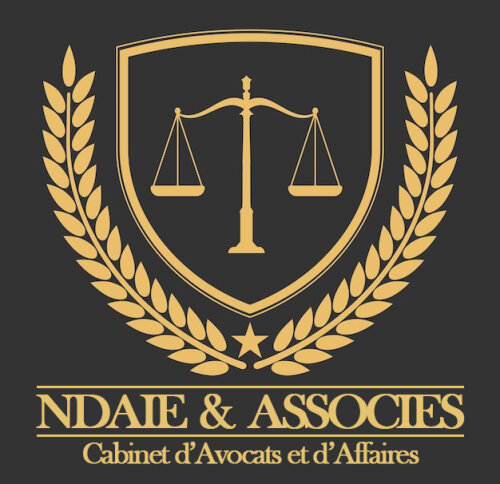Best Banking & Finance Lawyers in DR Congo
Share your needs with us, get contacted by law firms.
Free. Takes 2 min.
Or refine your search by selecting a city:
List of the best lawyers in DR Congo
About Banking & Finance Law in DR Congo
The Democratic Republic of the Congo (DR Congo) has a developing but complex banking and financial sector. The country’s banking system primarily falls under the regulation of the Central Bank of Congo (Banque Centrale du Congo, BCC), which is responsible for implementing monetary policy and maintaining the stability of the financial system. The legal framework governing banking and finance in DR Congo includes a mix of domestic laws and international practices. Key legislations include the Banking Act, which sets the standards for the operation of financial institutions, and various regulations that aim to combat money laundering and ensure consumer protection. With the economy experiencing gradual modernization, understanding the regulatory landscape is crucial for individuals and businesses engaging in financial activities in DR Congo.
Why You May Need a Lawyer
Engaging a lawyer in the field of banking and finance can be beneficial in several scenarios:
- Compliance Advice: Navigating DR Congo’s banking regulations and ensuring compliance can be intricate. Legal assistance can help ensure that a business or individual remains compliant with local laws.
- Contractual Agreements: Drafting, reviewing, and negotiating financial agreements require a legal expertise to safeguard interests and ensure enforceability.
- Dispute Resolution: In cases of financial disputes, such as loan defaults or disagreements with financial institutions, legal intervention can be crucial to resolve matters effectively.
- Acquisitions and Mergers: Engaging in mergers, acquisitions, or significant investments involves complex legal and financial matters where expert legal advice can be invaluable.
- Risk Management: Lawyers can assist in assessing and minimizing risks related to financial transactions and investments.
- Regulatory Inquiries: For issues related to regulatory compliance, advice from a qualified lawyer can help address inquiries or investigations by financial regulators.
Local Laws Overview
The financial services sector in DR Congo is governed by several key pieces of legislation and regulations:
- Banking Act: Lays the foundation for the establishment, regulation, and supervision of financial institutions.
- Central Bank of Congo Regulations: Provides comprehensive regulations to oversee monetary policy, currency stability, and financial system integrity.
- Anti-Money Laundering Act: Implements measures against financial crimes and requires financial institutions to perform due diligence.
- Investment Code: Governs foreign investments, ensuring protection and legal security for investors.
- Securities Regulation: Oversees capital markets and securities trading to foster transparency and investor safety.
Frequently Asked Questions
What authority regulates banks in DR Congo?
The Central Bank of Congo is the primary regulator for banks in DR Congo.
Is foreign exchange control actively managed in DR Congo?
Yes, the Central Bank of Congo regulates foreign exchange transactions to ensure financial stability.
Can foreign banks operate in DR Congo?
Yes, foreign banks can operate in DR Congo but must adhere to local regulations and obtain necessary licenses.
Is there a deposit insurance scheme in place?
As of the latest updates, DR Congo is working towards establishing a formal deposit insurance scheme to protect depositors.
What are the reporting requirements for financial institutions?
Financial institutions must comply with periodic reporting on their financial health and other regulatory requirements to the Central Bank.
How are securities regulated in DR Congo?
Securities activities are overseen by the entities like the Central Bank and relevant regulatory authorities to ensure safe trading practices.
Are digital financial services regulated?
The use and regulation of digital financial services are emerging areas and are increasingly being incorporated within the existing financial regulations.
How do I resolve a dispute with a bank?
It's advisable to seek legal counsel for mediation or resolution through the established financial dispute resolution frameworks provided by the authorities.
What are the penalties for non-compliance with banking regulations?
Penalties can include fines, suspension of operations, or license revocation, depending on the severity of the non-compliance.
Can loans be secured against assets in DR Congo?
Yes, loans can be secured against assets, but it is essential to comply with the regulations governing secured transactions.
Additional Resources
For further assistance, consider reaching out to:
- Central Bank of Congo (Banque Centrale du Congo): The main financial regulatory body.
- DR Congo Ministry of Finance: Responsible for national banking and financial policy oversight.
- Financial lawyers and legal practitioners: Specialists in banking and finance law can offer personalized advice and services.
- International Financial Institutions: Including World Bank and IMF offices in DR Congo for additional guidance and policy reports.
Next Steps
If you require legal assistance in banking and finance, the following steps can guide you:
- Identify Your Needs: Clearly define the legal issue or assistance you need.
- Consult Professionals: Seek recommendations or consultations with legal professionals specialized in banking and finance within DR Congo.
- Gather Documentation: Collect all relevant documents and information related to your financial issue or inquiry.
- Schedule an Initial Consultation: Arrange a meeting with a lawyer to discuss your circumstances and obtain preliminary advice.
- Consider Your Options: Evaluate the legal pathways and strategies suggested by your lawyer.
- Proceed With Legal Action or Advisory: Follow the advised course of action, whether it involves compliance adjustments, dispute resolution, or advanced financial planning.
Lawzana helps you find the best lawyers and law firms in DR Congo through a curated and pre-screened list of qualified legal professionals. Our platform offers rankings and detailed profiles of attorneys and law firms, allowing you to compare based on practice areas, including Banking & Finance, experience, and client feedback.
Each profile includes a description of the firm's areas of practice, client reviews, team members and partners, year of establishment, spoken languages, office locations, contact information, social media presence, and any published articles or resources. Most firms on our platform speak English and are experienced in both local and international legal matters.
Get a quote from top-rated law firms in DR Congo — quickly, securely, and without unnecessary hassle.
Disclaimer:
The information provided on this page is for general informational purposes only and does not constitute legal advice. While we strive to ensure the accuracy and relevance of the content, legal information may change over time, and interpretations of the law can vary. You should always consult with a qualified legal professional for advice specific to your situation.
We disclaim all liability for actions taken or not taken based on the content of this page. If you believe any information is incorrect or outdated, please contact us, and we will review and update it where appropriate.
Browse banking & finance law firms by service in DR Congo
DR Congo Attorneys in related practice areas.
Browse banking & finance law firms by city in DR Congo
Refine your search by selecting a city.















